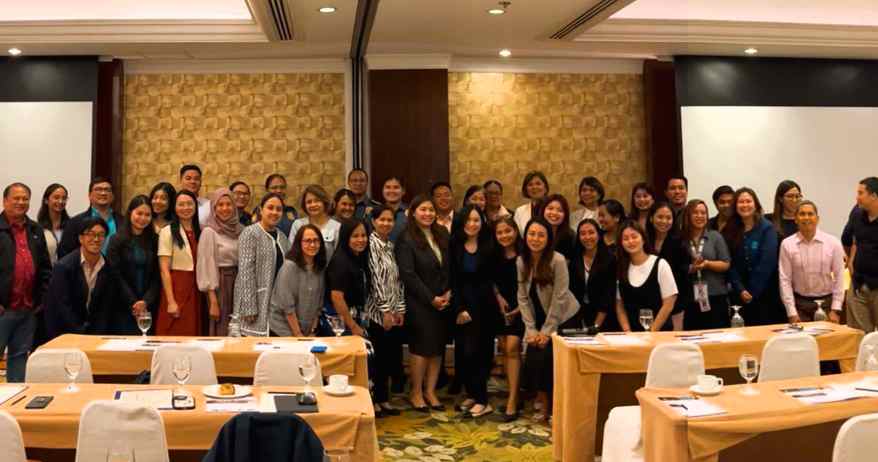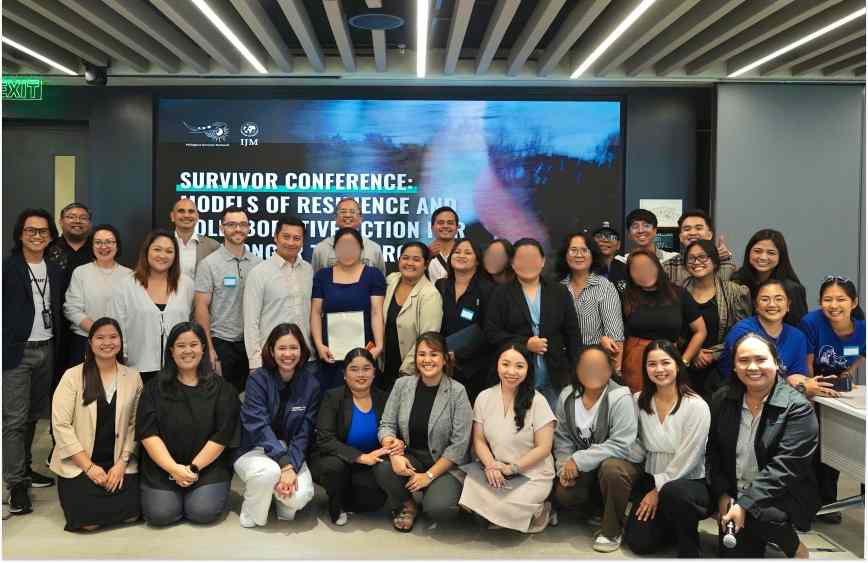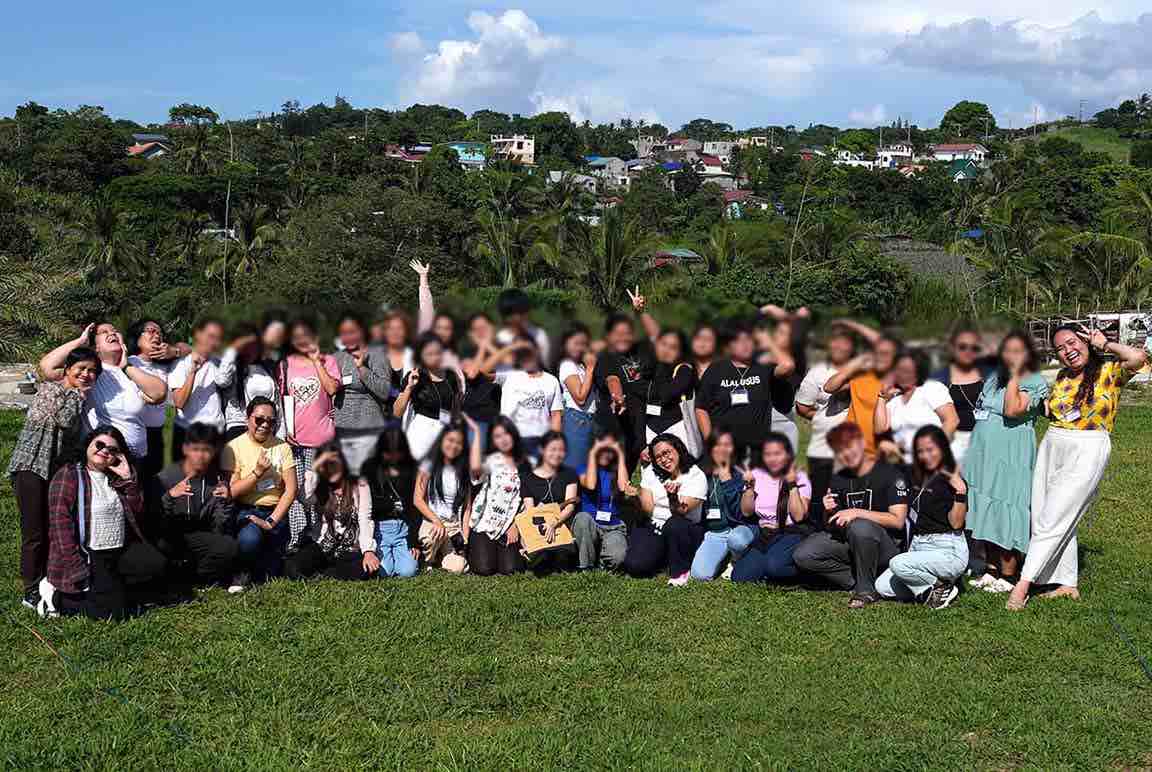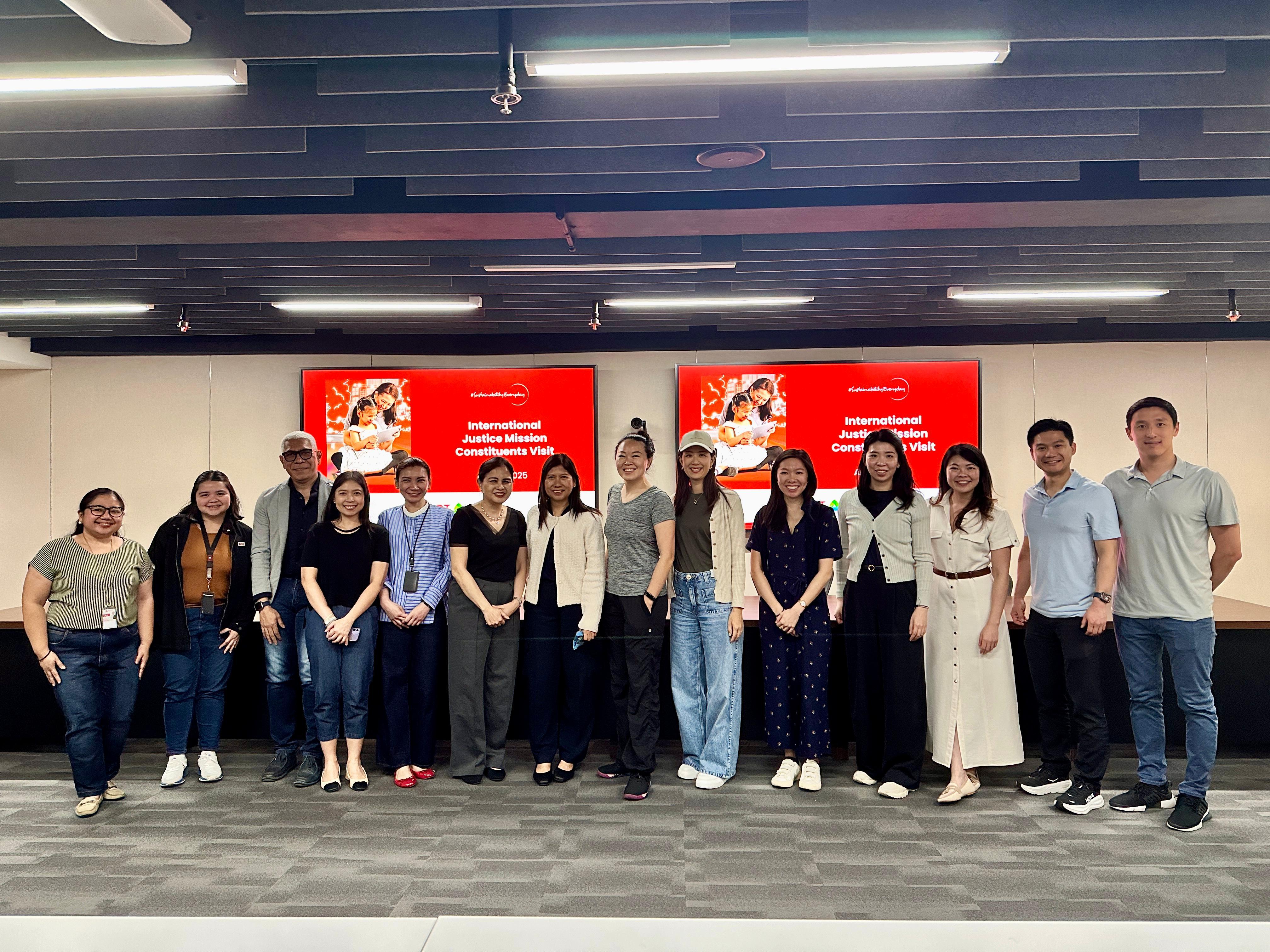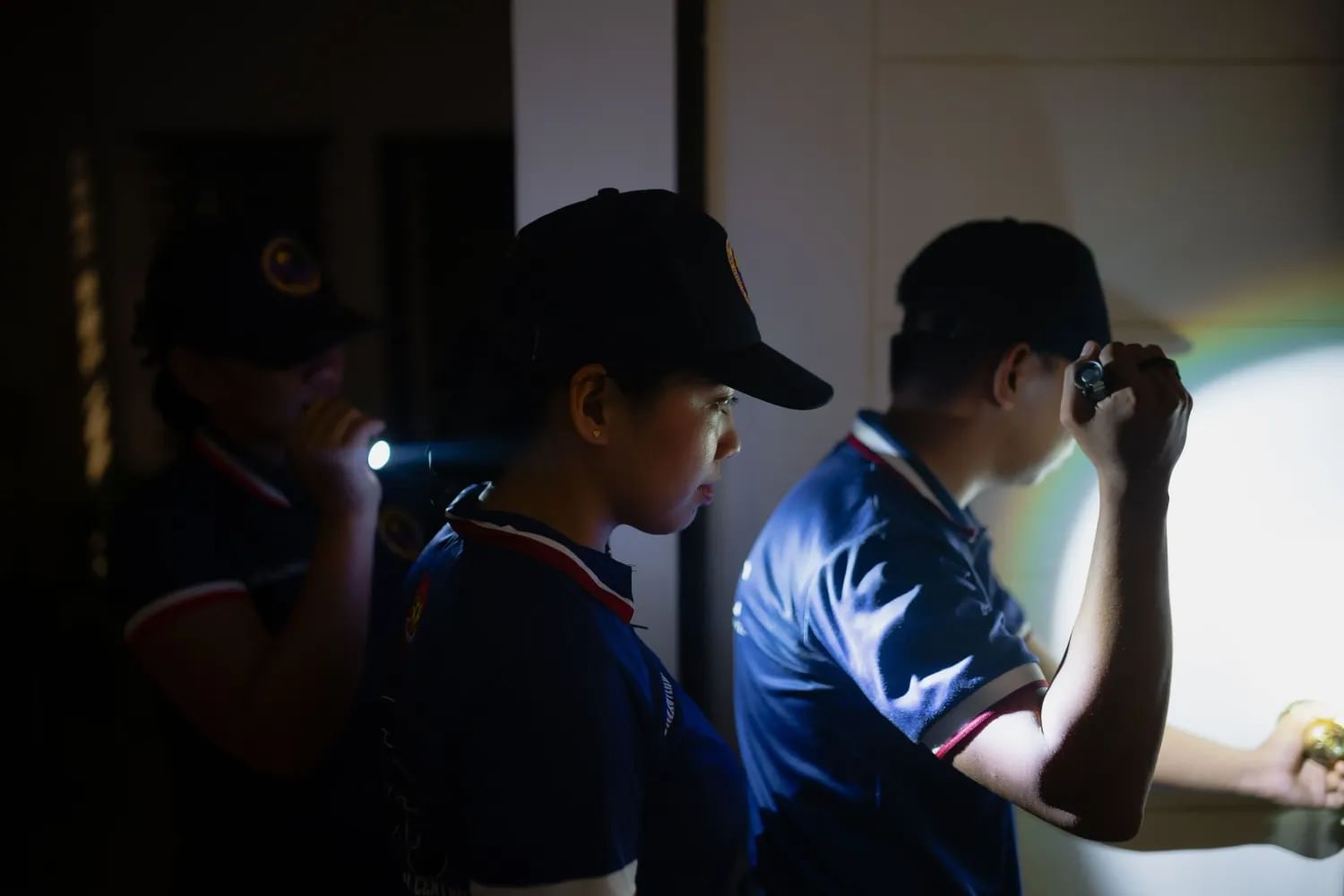
By Tryphena L.
In the criminal justice system and within the realm of online sexual exploitation of children (OSEC), law enforcement is often perceived as the “tip of the spear”. Law enforcement officers are tasked with investigating crime to ensure that children are rescued and protected, laws are upheld, and perpetrators are brought to justice. When this is done consistently and effectively, it further reinforces public trust in the legal system and increases protection for the most vulnerable population in society.
One of IJM’s key recommendations in the 2023 Scale of Harm report was to increase community reporting, empowering ownership on a local level in protecting children from risk of online sexual exploitation.
Strengthening community reporting meant equipping local law enforcement with the proper skills needed to adequately investigate this type of crime. If law enforcement is the tip of the spear, how do we help sharpen the spear, and strengthen the criminal justice response in the anti-OSEC realm?
Basic Internet Crimes Against Children (BICAC) Training for Local Law Enforcement
Over the years, IJM casework experience has shown the indispensable role of local law enforcement in responding to OSEC cases in the community and in supporting OSEC investigations by specialized units like the Women and Children Protection Center (WCPC) and the National Bureau of Investigations – Anti-Human Trafficking Division (NBI AHTRAD). IJM saw a critical gap – local law enforcement units did not have the relevant training that empowers them to respond to OSEC cases and effectively collaborate in OSEC investigations. During the 2020 pandemic, OSEC proliferated across several regions in the Philippines, and more cases started to show up in Visayas and Mindanao areas. Travel restrictions during that time limited specialized units in quickly and safely responding to OSEC cases across the regions, this gap was felt even more.
To respond to this felt gap in Visayas and Mindanao, IJM Cebu team built on the existing Basic ICAC Training and developed a curriculum that is tailored for local law enforcement and supporting units on the ground - the Philippine National Police Women and Children’s Protection Desk (WCPD) and National Bureau of Investigation (NBI) officers in the region - to strengthen local law enforcement's response to community complaints involving the creation and distribution of child sexual abuse and exploitation material (CSAEM) or Trafficking of CSAEM as defined and penalized under the Philippine Trafficking Law and OSAEC law.
The first BICAC training for WCPD and Regional Anti-Cybercrime Unit (RACU) officers occurred in April 2021 in the Caraga Region in Northeastern Mindanao. The pandemic led to the training to be delivered online via Zoom.
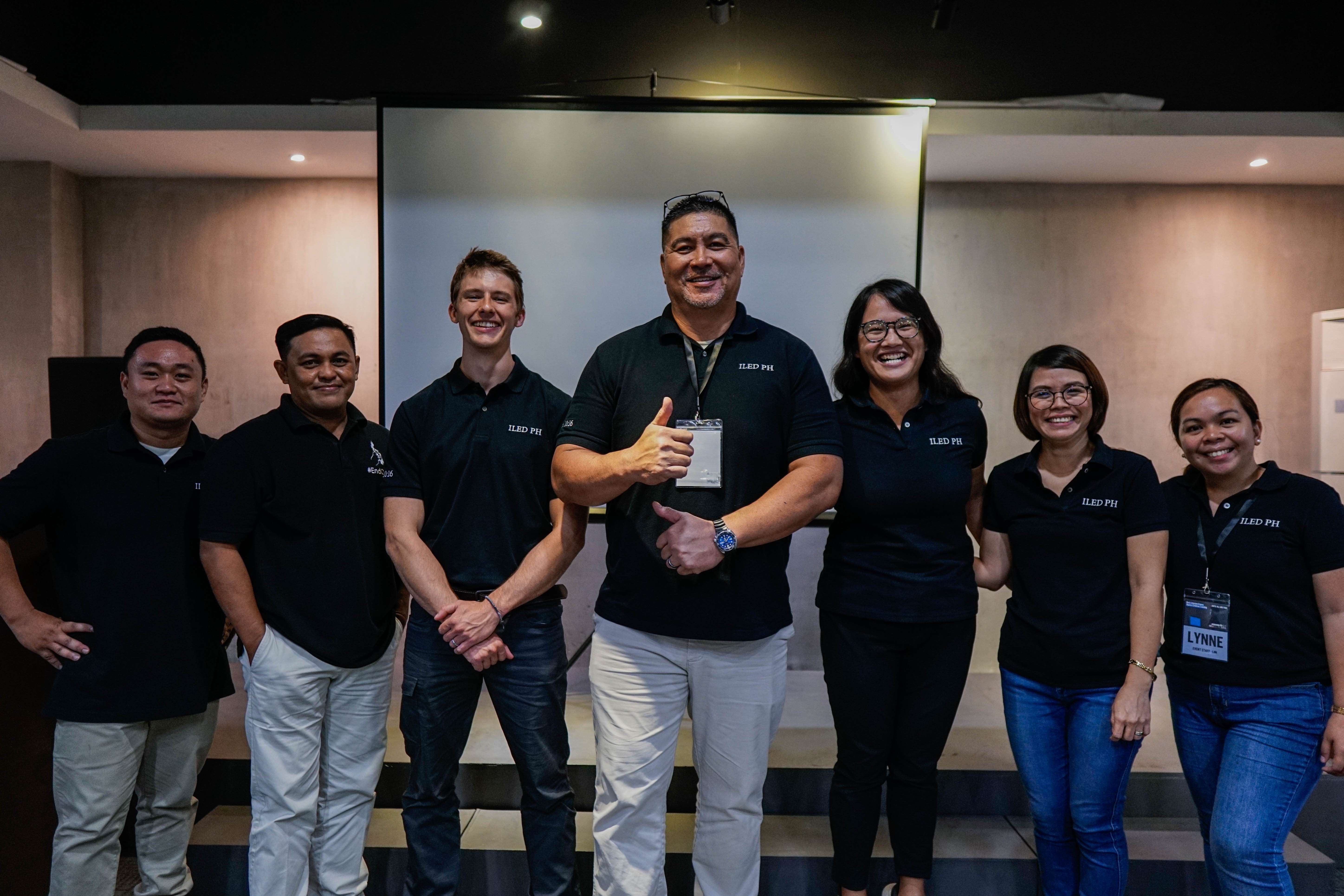
A Collaborative, Inter-Agency Approach
Over the years, BICAC training’s evolution began to include a multi-disciplinary approach through inviting other key players in public justice system to provide a more well-rounded training and mentorship to the law enforcement participants. Casework experience has shown us that one of the roadblocks to collaboration is the lack of understanding and appreciation of the interdependent roles of frontline responders – law enforcement, social services and prosecution.
Incorporating the multi-disciplinary approach in this training through cross-discipline input and learning, allowed participants to fully understand how the performance of their respective roles impacts the delivery of services by the other responders and vice versa. For instance, a solid investigation by law enforcement that factors in what prosecution would need later during trial will likely achieve not only arrest but conviction, bring real perpetrator accountability to the finish line. When law enforcement and prosecution handle survivors in a trauma-informed way and provide support to survivors from rescue all the way up to trial, social workers will likely be able to provide a more holistic aftercare intervention to the survivors. When local law enforcement and specialized units work together on cases, bringing their respective skills, expertise and resources together, investigations will result in timely rescues, bringing more children out of exploitation.
The training encouraged collaboration and coordination among government agencies and stakeholders, further emphasizing the reality that the fight to protect half a million children cannot be done alone, but side by side with partners in each step of the way. During the training, government prosecutors presented legal aspects and brought in the prosecution lens in investigations. IJM taught the topic on Trauma-informed Investigations bringing in an approach that was historically perceived as just for social workers, but a lens that all those who interact with survivors must have. A session on Multi-Disciplinary Team Approach highlights the importance of working as a strong response team composed of different professionals, working together as ONE TEAM.
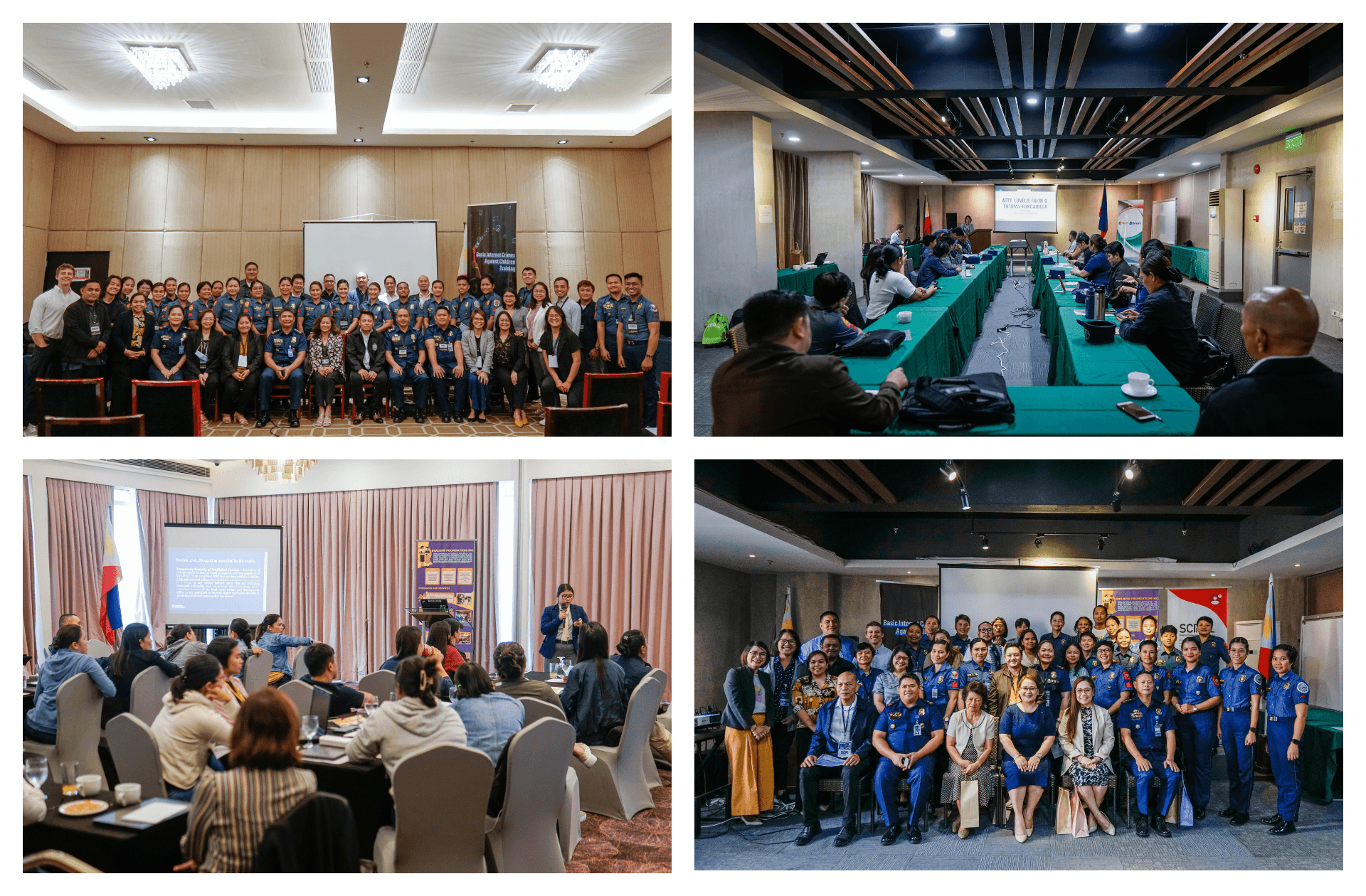
Increased Local Ownership
In Cebu, IJM in partnership with Bidlisiw Foundation, PNP-WCPC and DOJ Regional Inter-Agency Council Against Trafficking conducted 2 batches of BICAC trainings. A total of 41 regional and local law enforcement partners from Cebu City, Lapu-Lapu City, Mandaue City, Consolacion and other parts of Cebu Province were trained in various online investigative skills and relevant laws regarding OSEC.
Government agencies such as DOJ-Regional Inter Agency Council Against Trafficking, PNP-WCPC and NBI-Anti Trafficking Division sent resource persons as subject matter experts to speak during trainings and provide mentorship to the participants alongside IJM staff.
In other iterations, police regional offices or LGU cost-share with IJM in running the training. In some notable instances, the local government even took the initiative to form a local task force against OSAEC, as in the case of Iligan City. The local task force is composed of a multi-disciplinary team focused on addressing OSAEC cases within the community in the city.
Let us not underestimate the impact of showing up. Every time we show up, we change the trajectory of these children's lives. This is why it is important to show up equipped and equipped to protect. - Atty. Lucille Dejito
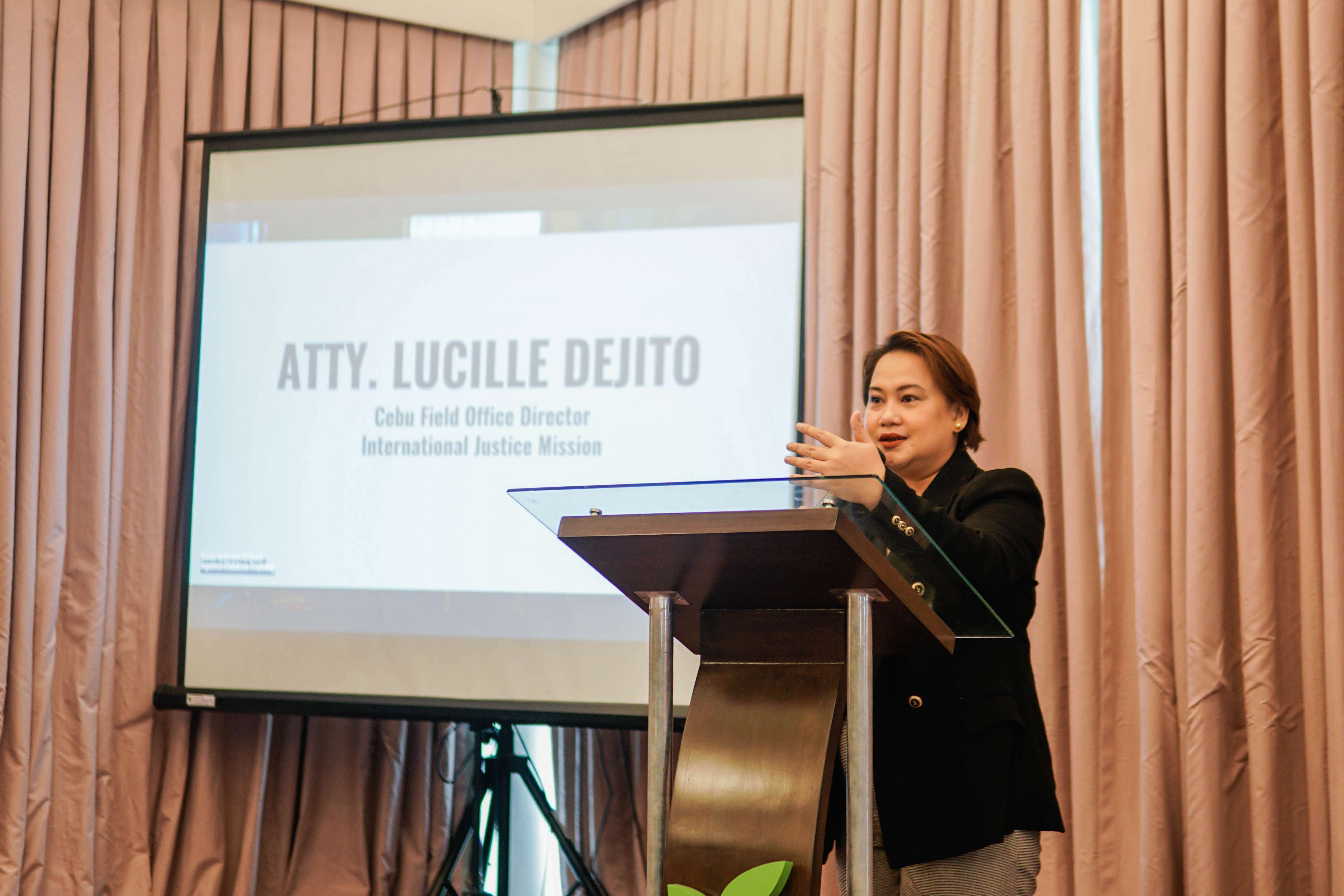
Given the nature of OSEC, many law enforcement participants come into training with minimal knowledge and experience in investigating this type of crime. BICAC training provides an opportunity for law enforcement partners to learn and practice practical online investigative skills and strategies, all the while empowering them to become champions in fighting OSEC and protecting children in their community. Throughout the week, participants begin to learn more about how OSEC crimes are committed, how they can be investigated, and how they can be prevented. By empowering and equipping them, law enforcement officers see the significant impact of showing up and standing against exploitation of children. As Attorney Lucille Dejito, Director of IJM Cebu, stated in the opening ceremony of the training,
Let us not underestimate the impact of showing up. Every time we show up, we change the trajectory of these children's lives. This is why it is important to show up equipped and equipped to protect.
Participants often feel encouraged knowing they are not alone in this fight when they can work alongside and share ideas with prosecutors and other law enforcement partners in their region.
BICAC training also allows for opportunities for local law enforcers to collaborate with regional law enforcement and other key players in the justice system. Participants often feel encouraged knowing they are not alone in this fight when they can work alongside and share ideas with prosecutors and other law enforcement partners in their region. The fight against OSEC is not meant to be fought alone, and partnerships between police agencies, social workers, and prosecutors further strengthen the impact in rescuing children, and holding perpetrators accountable. Collaboration and coordination between and among government agencies and stakeholders is important.
While its true, BICAC Training aims to build the capacity of local and regional law enforcement authorities to respond to OSAEC cases reported within the community, the training also provide increased opportunity for collaboration between law enforcement (specialized units) and local public prosecutors in case build up investigation of OSAEC cases while building capacity of law enforcement specialized units (PNP WCPC) and local prosecutors to be mentors and trainers within their area of jurisdiction in the region. Ultimately, leading the public justice system in taking ownership in the fight against OSAEC.
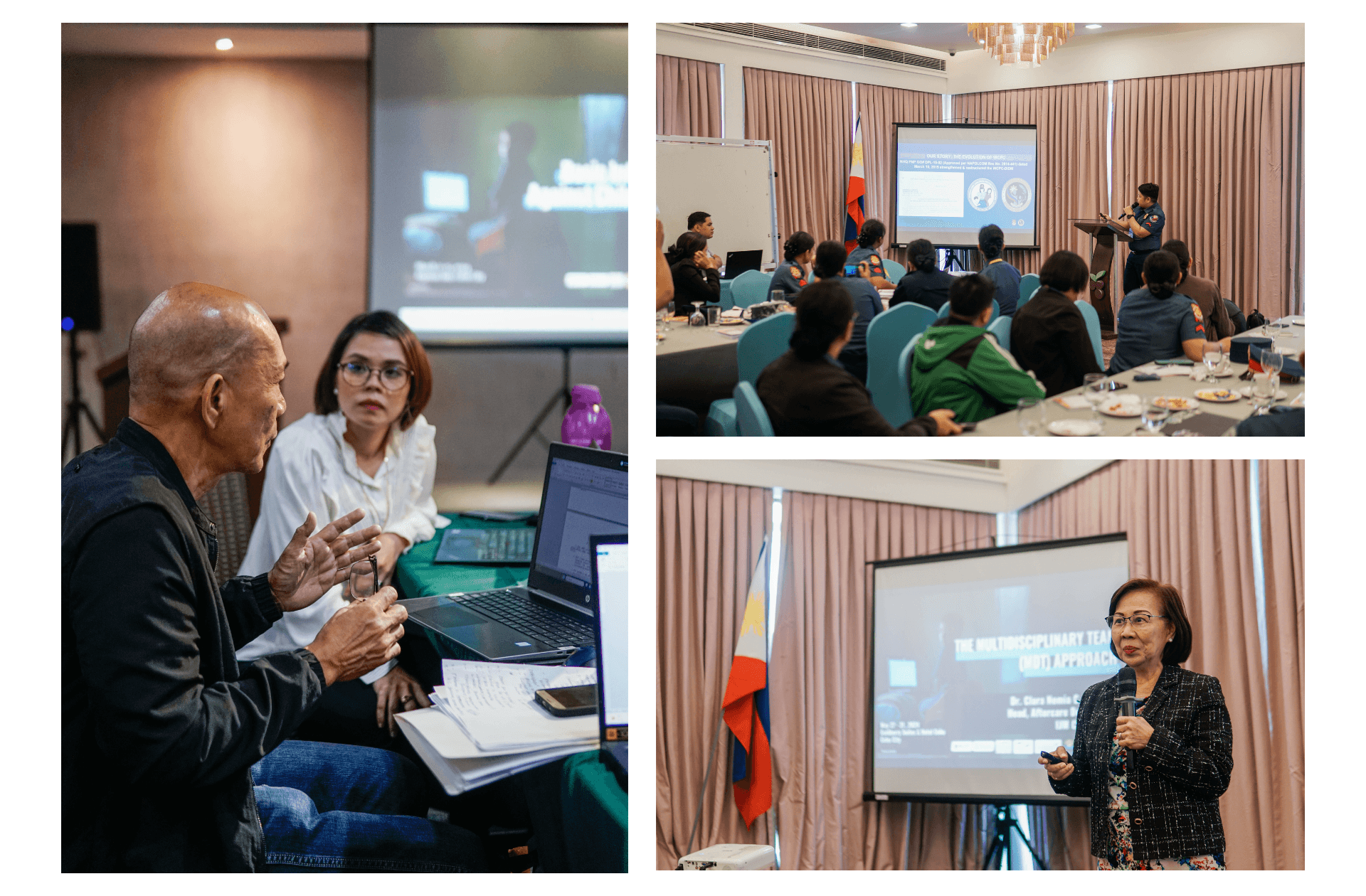
Protecting Children and Building Trust in the Philippine Criminal Justice System
Effective investigative skills are the bedrock of successful law enforcement, allowing officers to uncover the truth, protect children in their communities, and build public trust in the legal system. BICAC training develops and empowers law enforcement officers to pursue justice and fight OSEC, further strengthening and sharpening the tip of the spear. By prioritizing and investing in the development of these skills in our law enforcement officers across the Philippines, we can be one step closer to ensuring that all, especially those who are most vulnerable, will be protected and free from online sexual exploitation.
